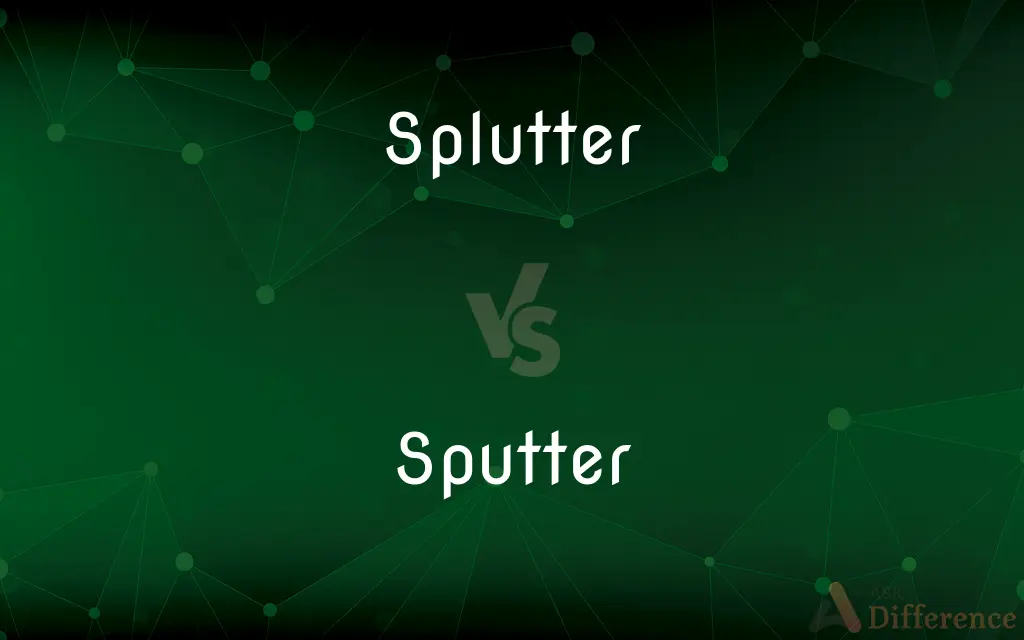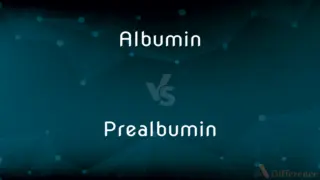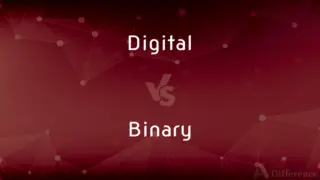Splutter vs. Sputter — What's the Difference?
Edited by Tayyaba Rehman — By Urooj Arif — Updated on April 16, 2024
Splutter refers to speaking hastily or in a confused manner, often with repeated sounds, while sputter involves emitting particles or making sporadic spitting sounds.

Difference Between Splutter and Sputter
Table of Contents
ADVERTISEMENT
Key Differences
Splutter typically describes a manner of speaking where someone talks rapidly and somewhat incoherently, often due to agitation or excitement. On the other hand, sputter is more commonly used to describe a noise or action, particularly one that involves emitting small, scattered particles or making soft popping sounds.
Splutter is often used in contexts involving speech, where someone might splutter objections or exclamations. Whereas, sputter might be found describing mechanical failures, like an engine failing to start properly or a candle flickering out.
In terms of sound, spluttering can involve a mix of stammering, stuttering, and coughing, reflecting a physical or emotional reaction. On the other hand, sputtering is more mechanical or physical, involving bursts or interruptions in a flow, like a sputtering faucet.
The emotional context of splutter often conveys frustration or bewilderment, as someone might splutter in response to being overwhelmed or caught off guard. Conversely, sputter is usually devoid of emotional context, focusing on the sound or action itself.
In literature, splutter is used to enhance a character's vivid emotional expression or to introduce humor through a flustered dialogue. Meanwhile, sputter can be utilized to set a scene or describe the functionality of objects, contributing to a setting's ambiance or the realism of an environment.
ADVERTISEMENT
Comparison Chart
Definition
Speaking in a rapid, confused manner
Emitting particles, making spitting sounds
Context
Emotional, personal
Mechanical, physical
Common Uses
Speech, dialogues
Machines, engines, physical objects
Sound
Mixed with stammering, stuttering, and coughing
Sporadic popping or hissing sounds
Emotional Association
Often conveys agitation or surprise
Generally neutral or technical
Compare with Definitions
Splutter
To speak rapidly and somewhat incoherently.
She began to splutter excuses when caught unprepared.
Sputter
To emit matter in sporadic bursts.
The malfunctioning nozzle sputtered paint unevenly.
Splutter
To eject liquid or food particles from the mouth while talking.
He spluttered coffee across the table during his startled laugh.
Sputter
To display erratic behavior or action.
His concentration sputtered as fatigue set in.
Splutter
To express oneself in a confused or agitated manner.
Frustrated, she could only splutter her disagreement.
Sputter
To make a series of soft explosive sounds.
The old car engine sputtered before finally starting.
Splutter
To make explosive spitting or choking sounds.
He spluttered indignantly after swallowing water the wrong way.
Sputter
To speak in a stammering, spasmodic manner.
Overwhelmed by emotion, his thank you speech sputtered to a halt.
Splutter
To burst out words abruptly and forcibly.
In his rage, he could only splutter insults.
Sputter
To perform or function intermittently.
The dying light bulb sputtered in the lamp.
Splutter
To make repeated or sporadic spitting sounds.
Sputter
To spit out or spray particles of saliva or food from the mouth in noisy bursts.
Splutter
To speak hastily and incoherently, as when confused or angry.
Sputter
To spit out words or sounds in an excited or confused manner.
Splutter
To utter or express hastily and incoherently.
Sputter
To make sporadic spitting or popping sounds
The fire sputtered and died.
Splutter
A spluttering noise.
Sputter
(Physics) To cause the atoms of a solid to be removed from the surface by bombardment with atoms in a discharge tube.
Splutter
(countable) A forceful emission of something, especially in small drops or particles; a spluttering or sputtering.
A splutter of water from a pipe
Sputter
To eject in short bursts with spitting or popping sounds.
Splutter
(countable) A forceful choking or spitting sound.
Sputter
To utter in an excited or confused manner.
Splutter
(figuratively)
Sputter
(Physics) To coat (a solid surface) with metal atoms by sputtering.
Splutter
(countable) A noisy commotion.
Sputter
The act or sound of sputtering.
Splutter
(countable) A disagreement or dispute.
Sputter
Matter emitted in sputtering.
Splutter
(uncountable) Chaotic and forceful speaking, verbal exchange, etc.; (countable) an instance of this.
A splutter of rage from the old man
Sputter
Excited or confused utterance.
Splutter
(transitive)
Sputter
Moist matter thrown out in small detached particles.
Splutter
To forcefully emit (something), especially in small drops or particles; to sputter.
Sputter
Confused and hasty speech.
Splutter
To soil or sprinkle (someone or something) with a substance, often a liquid; to bespatter, to spatter.
Sputter
(intransitive) To emit saliva or spit from the mouth in small, scattered portions, as in rapid speaking.
Splutter
(figuratively)
Sputter
(ambitransitive) To speak so rapidly as to emit saliva; to utter words hastily and indistinctly, with a spluttering sound, as in rage.
Splutter
(intransitive)
Sputter
(ambitransitive) To throw out anything, as little jets of steam, with a noise like that made by one sputtering.
Splutter
Of a thing: to forcefully emit something, especially in small drops or particles.
Sputter
To cause surface atoms or electrons of a solid to be ejected by bombarding it with heavy atoms or ions.
Splutter
Of a substance: to be emitted forcefully in small drops or particles.
Sputter
To coat the surface of an object by sputtering.
Splutter
To make a sound or sounds of something forcefully emitting a substance in small drops or particles.
Sputter
To spit, or to emit saliva from the mouth in small, scattered portions, as in rapid speaking.
Splutter
Followed by out: to go out (as a flame) or stop functioning (as an engine or machine) with a spluttering action or sound (senses 2.1 or 2.3).
Sputter
To utter words hastily and indistinctly; to speak so rapidly as to emit saliva.
They could neither of them speak their rage, and so fell a sputtering at one another, like two roasting apples.
Splutter
(figuratively)
Sputter
To throw out anything, as little jets of steam, with a noise like that made by one sputtering.
Like the green wood . . . sputtering in the flame.
Splutter
A minced oath expressing anger or wonder, usually attributed to Welsh people: 'sblood.
Sputter
To spit out hastily by quick, successive efforts, with a spluttering sound; to utter hastily and confusedly, without control over the organs of speech.
In the midst of caresses, and without the least pretended incitement, to sputter out the basest accusations.
Splutter
To speak hastily and confusedly; to sputter.
Sputter
Moist matter thrown out in small detached particles; also, confused and hasty speech.
Splutter
A confused noise, as of hasty speaking.
Sputter
The noise of something spattering or sputtering explosively;
He heard a spatter of gunfire
Splutter
The noise of something spattering or sputtering explosively;
He heard a spatter of gunfire
Sputter
An utterance (of words) with spitting sounds (as in rage)
Splutter
An utterance (of words) with spitting sounds (as in rage)
Sputter
Make an explosive sound;
Sputtering engines
Splutter
Utter with a spitting sound, as if in a rage
Sputter
Cause to undergo a process in which atoms are removed;
The solar wind protons must sputter away the surface atoms of the dust
Splutter
Spit up in an explosive manner
Sputter
Climb awkwardly, as if by scrambling
Sputter
Utter with a spitting sound, as if in a rage
Sputter
Spit up in an explosive manner
Common Curiosities
What does it mean to splutter in conversation?
To splutter in conversation means to speak in a hurried, often emotional or confused manner.
Can a machine splutter?
Typically, "splutter" is not used for machines. Machines "sputter" as they emit noises or operate intermittently.
Is sputtering always associated with sounds?
Primarily, yes. Sputtering usually involves making a series of soft, spitting, or popping sounds.
Can sputter be used to describe someone's speech?
Yes, if their speech is interrupted and sporadic, similar to the stuttering of an engine.
Do both splutter and sputter relate to liquid?
Splutter can involve expelling liquid from the mouth, whereas sputter might describe a liquid being expelled in bursts from a non-living object.
What is the emotional context of spluttering?
Spluttering often conveys agitation, excitement, or confusion.
How do splutter and sputter differ in literature?
Splutter is used for expressive, often humorous speech, while sputter can describe the environmental or mechanical setting.
Is spluttering considered rude?
It can be seen as rude if it involves spitting while talking, but it's often unintentional.
Can I say a candle splutters?
More appropriately, a candle sputters as it flickers or goes out.
How can I stop spluttering when I speak?
Slowing down, organizing thoughts, and calming emotions can help reduce spluttering.
Which is more likely to be used in a technical context, splutter or sputter?
Sputter is more common in technical contexts, especially describing machinery or technical processes.
What indicates sputtering in an engine?
An engine sputters when it misfires, pops, or hesitates, indicating irregular performance.
Can splutter be controlled?
Spluttering is often involuntary, driven by emotion or surprise.
What are common causes of sputtering in physical objects?
Common causes include mechanical failures, blockages, or disruptions in flow.
Is sputtering a sign of malfunction?
Yes, in mechanical contexts, sputtering often indicates a problem or malfunction.
Share Your Discovery

Previous Comparison
Albumin vs. Prealbumin
Next Comparison
Digital vs. BinaryAuthor Spotlight
Written by
Urooj ArifUrooj is a skilled content writer at Ask Difference, known for her exceptional ability to simplify complex topics into engaging and informative content. With a passion for research and a flair for clear, concise writing, she consistently delivers articles that resonate with our diverse audience.
Edited by
Tayyaba RehmanTayyaba Rehman is a distinguished writer, currently serving as a primary contributor to askdifference.com. As a researcher in semantics and etymology, Tayyaba's passion for the complexity of languages and their distinctions has found a perfect home on the platform. Tayyaba delves into the intricacies of language, distinguishing between commonly confused words and phrases, thereby providing clarity for readers worldwide.
















































